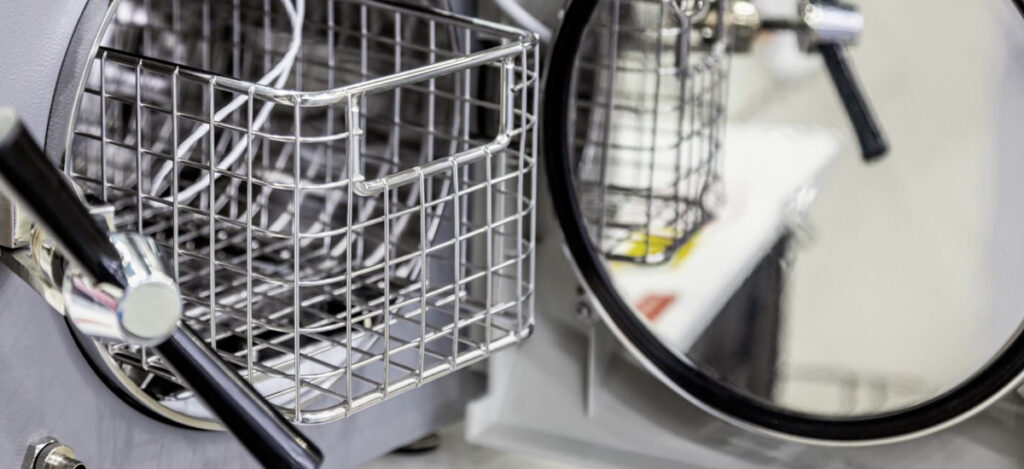Stability Testing vs. Package Integrity Testing
What is package integrity?
Suppose we break down the term package integrity. The definition of a package is a wrapped object or a group of objects. The state of integrity is a state of being whole and undivided. Thus, package integrity testing has to do with how well a package stays complete and undivided to keep wrapped objects protected and sterile. In the context of package integrity and package integrity testing, a product package is considered both the product packaging itself and the product’s contents.
Package integrity and container-closure integrity are terms that are used interchangeably. These terms are the same, depending upon the definition of container-closure integrity. In the past, container–closure integrity referred to a package that had passed or could pass a microbiological challenge test. With the USP 1207 definition of container-closure integrity, package integrity and container-closure integrity are synonymous. The USP 1207 guidance defines container–closure integrity as the absence of all package leaks that risk product quality. In other words, the package is intact such that any small leaks of concern are absent.
What is stability?
Stability is a suspended state where there is no change. In terms of FDA regulations, stability covers five FDA categories: chemical stability, physical stability, therapeutic stability, toxicological stability, and microbiological stability of a medical device or product. Chemical stability refers primarily to drug formulations and ensures that all molecules in a formulation remain in their therapeutic state and do not undergo additional chemical reactions over time. However, medical devices must also be protected from oxidative chemical reactions or other chemical reactions that could cause the degradation of product materials. Physical stability refers to biological therapeutics (maintaining the physical integrity of protein structures over time) and the physical functional stability of medical devices or combination products. Therapeutic stability refers to the stability of a product or device’s therapeutic efficacy over time. Toxicological stability refers to the stability of the medical product, cosmetic, drug, or medical device’s toxicity levels over time. Finally, microbiological stability is the sterility of the product over time.
How are stability and package integrity different?
Package integrity refers to the functionality of the packaging material to support product stability over time. Thus, package integrity is a functionality evaluation versus a stability evaluation. However, package integrity is interrelated with stability since package integrity is important for the stability of a product over time. Stability covers far more than package integrity. Stability covers chemical, physical, therapeutic, toxicological, and microbiological stability. Multiple factors, such as the compatibility of product additives, materials, active ingredients, and agents, impact stability. These medical product stability factors would not have any impact on package integrity.

What are the differences between stability testing and package integrity testing?
Overall, package integrity testing has to do with testing how well a package stays whole and undivided to keep wrapped objects protected and sterile. Package integrity testing involves both leak testing and seal quality assessment of your packaging system. For additional information on specific package integrity tests, see our articles on seal strength testing, bubble emissions testing, and dye penetration testing. Package integrity testing is governed by a variety of ASTM guidance documents as well as USP 1207.
Stability testing covers the physical storage of packages over time (under normal and accelerated aging conditions) and tests for sterility, toxicity, chemical stability, physical stability, functionality, and therapeutic efficacy at various points during product storage. Stability testing is covered by a variety of ASTM guidance documents and USP standards for tests such as bacterial endotoxin testing (USP 1085).
Why are stability and package integrity testing important for your medical device or product?
Product packaging, also known as a sterile barrier system (SBS), breaks down over time. The loss of SBS integrity occurs due to packaging material or adhesive degradation over time. Product packaging is designed to protect sterility and product functionality until an item is at the point of use or expiry. Sterility of medical devices and products is vital to reduce and prevent patient infection during product use. Thus, package integrity testing is critical for ensuring sterility maintenance of pharmaceutical products, medical products, and medical devices. Stability testing validates SBS integrity and supports claims for a certain expiration date. The sterility (microbial stability), chemical stability, and physical stability of a product over time are extremely important to patient safety and product efficacy. If a drug chemically degrades or the physical properties of a medical device degrade over time, the chemical and physical functionalities of these medical products will be jeopardized, causing patient illness or worsening of disease symptoms.
Summary
Overall, stability and package integrity testing are critical components of regulatory testing for FDA-approved medical devices, cosmetics, and products. Stability testing and package integrity testing cover a wide range of assays. Ensure you choose a contract testing organization that can support all the stability and package integrity tests for your unique medical device or product needs.
MycoScience is a contract manufacturing organization that specializes in filling sterile syringes and vials for parenteral products. MycoScience also offers Sterilization Validations, Bacterial Endotoxin Testing, Preservative Efficacy Testing, Bioburden Testing, Cleaning Validations, Microbial Aerosol Challenge Testing, Accelerated Aging, Microbiology Testing, Cytotoxicity Testing, EO Residual Testing, Package Integrity Testing & Environmental Monitoring services for medical device companies, and allied industries. MycoScience is an ISO 13485 certified facility.
References
Michael J. Akers. Sterile Drug Products Formulation, Packaging, Manufacture, and Quality. Drugs and the Pharmaceutical Sciences. Informa Healthcare. 2010.
United States Pharmacopeial Convention. <1207> Package Integrity Evaluation- Sterile Products. Rockville, MD, USA. 2021. (USPC <1207>).
United States Pharmacopeial Convention. <1085> Guidelines On The Endotoxins Test. Rockville, MD, USA. 2021. (USPC <1085>).
Sharing this in your social netwroks

